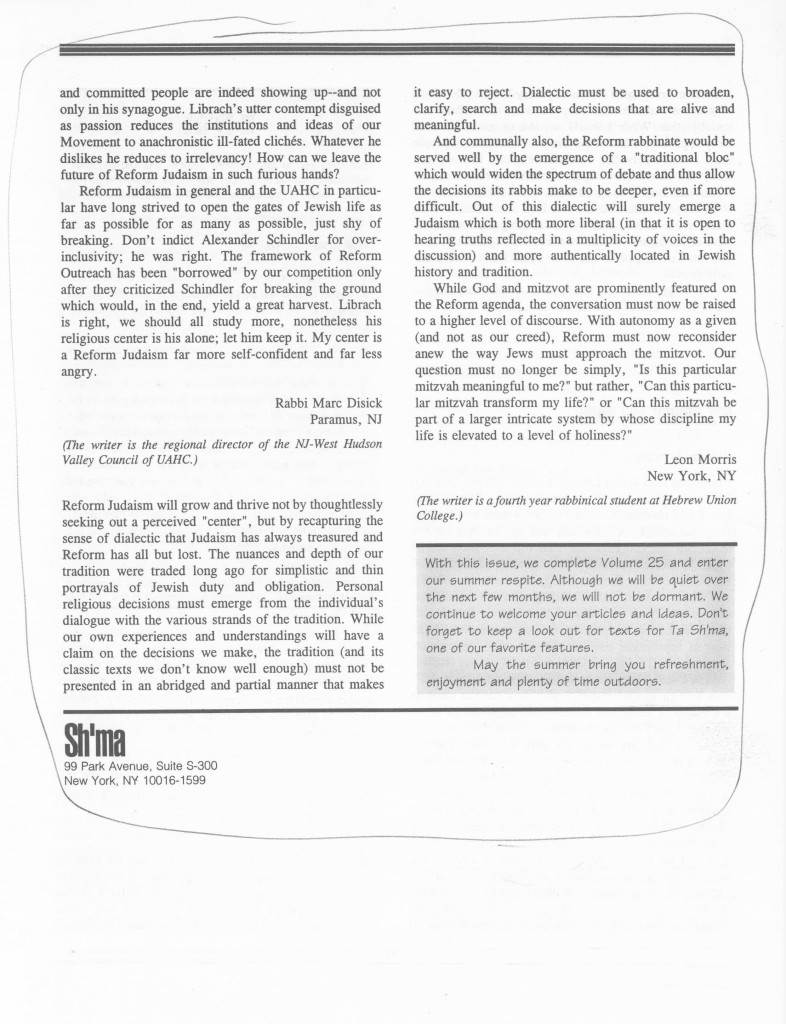Rabbi Leon A. Morris, Sh’ma Journal
At the time of publication the writer was a fourth year rabbinical student at Hebrew Union College
Reform Judaism will grow and thrive not by thoughtlessly seeking out a perceived “center”, but by recapturing the sense of dialectic that Judaism has always treasured and Reform has all but lost. The nuances and depth of our tradition were traded long ago for simplistic and thin portrayals of Jewish duty and obligation. Personal religious decisions must emerge from the individual’s dialogue with the various strands of the tradition. While our own experiences and understandings will have a claim on the decisions we make, the tradition (and its classic texts we don’t know well enough) must not be presented in an abridged and partial manner that makes it easy to reject. Dialectic must be used to broaden, clarify, search and make decisions that are alive and meaningful.
And communally also, the Reform rabbinate would be served well by the emergence of a “traditional bloc” which would widen the spectrum of debate and thus allow the decisions its rabbis make to be deeper, even if more difficult. Out of this dialectic will surely emerge at Judaism which is both more liberal (in that it is open to hearing truths reflected in a multiplicity of voices in the discussion) and more authentically located in Jewish history and tradition.
While God and mitzvot are prominently featured on the Reform agenda, the conversation must now be raised to a higher level of discourse. With autonomy as a given (and not as our creed), Reform must now reconsider anew the way Jews must approach the mitzvot. Our question must no longer be simply, “Is this particular mitzvah meaningful to me? ” but rather, “Can this particular mitzvah transform my life?” or “Can this mitzvah be part of a larger intricate system by whose discipline my life is elevated to a level of holiness?”
